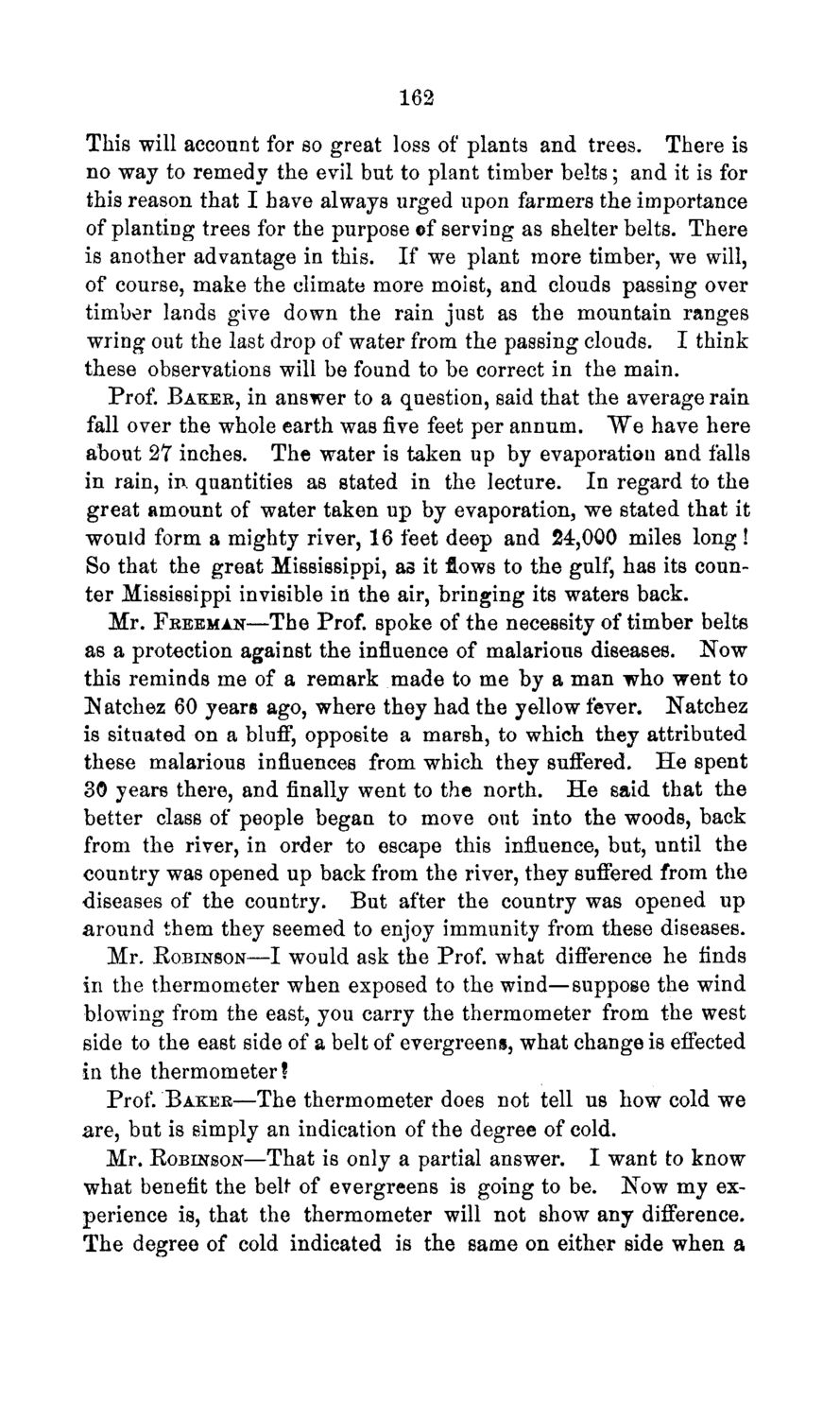| |
| |
Caption: Board of Trustees Minutes - 1869
This is a reduced-resolution page image for fast online browsing.

EXTRACTED TEXT FROM PAGE:
162 This will account for so great loss of plants and trees. There is no way to remedy the evil but to plant timber belts; and it is for this reason that I have always urged upon farmers the importance of planting trees for the purpose ©f serving as shelter belts. There is another advantage in this. If we plant more timber, we will, of course, make the climate more moist, and clouds passing over timber lands give down the rain just as the mountain ranges wring out the last drop of water from the passing clouds. I think these observations will be found to be correct in the main. Prof. BAKER, in answer to a question, said that the average rain fall over the whole earth was five feet per annum. "We have here about 27 inches. The water is taken up by evaporation and falls in rain, in. quantities as stated in the lecture. In regard to the great amount of water taken up by evaporation, we stated that it would form a mighty river, 16 feet deep and 24,000 miles long! So that the great Mississippi, as it flows to the gulf, has its counter Mississippi invisible in the air, bringing its waters back. Mr. FREEMAN—The Prof, spoke of the necessity of timber belts as a protection against the influence of malarious diseases. Now this reminds me of a remark made to me by a man who went to Natchez 60 years ago, where they had the yellow fever. Natchez is situated on a bluff, opposite a marsh, to which they attributed these malarious influences from which they suffered. H e spent 30 years there, and finally went to the north. H e said that the better class of people began to move out into the woods, back from the river, in order to escape this influence, but, until the country was opened up back from the river, they suffered from the diseases of the country. But after the country was opened up around them they seemed to enjoy immunity from these diseases. Mr. ROBINSON—I would ask the Prof, what difference he finds in the thermometer when exposed to the wind—suppose the wind blowing from the east, you carry the thermometer from the west side to the east side of a belt of evergreens, what change is effected in the thermometer! Prof. BAKER—The thermometer does not tell us how cold we are, but is simply an indication of the degree of cold. Mr. ROBINSON—That is only a partial answer. I want to know what benefit the belt of evergreens is going to be. Now my experience is, that the thermometer will not show any difference. The degree of cold indicated is the same on either side when a
| |